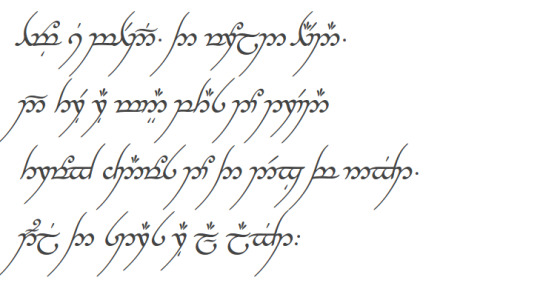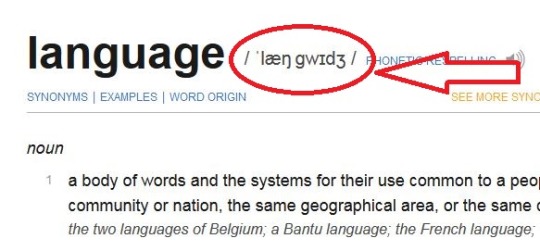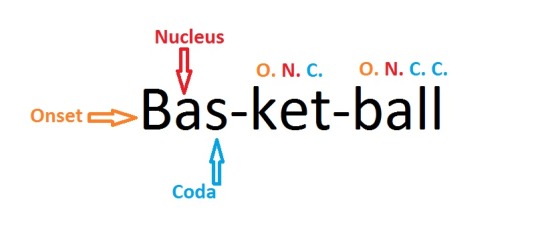#is that it makes this conlang seem even more finnish
Text
stupid orthography ideas: use <ë> and <ä> for /ə/ and /ɐ/ respectively, where the double dot is essentially saying, "this vowel but the neutral tone one"
( and yes I know [ə] & [e] and [a] and [ɐ] are different heights. realistically it's probably more like /ə ~ ɘ/ for <ë> at the very least while /ɐ/ is just any open central-ish vowel. shh. its fine. I built this three-way a-ɐ-ɑ distinction and I'm NOT changing it even if it'll make the orthography easier. fuck you, me )
#from the writer's den#void talks#conlanging#for anyone curious a & ɑ are a vowel harmony pair which is part of why im not bothering to discuss that issue here#since Realistically it would probably either be clear from the other vowels or in-universe you'd just have to Remember it#and at least rn there arent any base pairs for a--ɑ#it's just harmonized bc harmony fun#anyway my only reticence toward this aside from the fact that I wanted to reserve any top diacritics for the macron for length#is that it makes this conlang seem even more finnish#and the tolkien fans are going to see codal ë and be like I know this one#without realizing nO#ITS A DIFFERENT VOWEL#ITS NOT e#but whateverrrrrrrr#the alternative was using an underdot which my keyboard doesn't let me input by default :(#and I want to move AWAY from using my unicode keyboard#bc it's annoying as fuck
11 notes
·
View notes
Text
Creating Fictional Languages (Conlangs)
I wish I could say I'm an amazing linguist and could give you my take on creating languages for fiction, but I'm not and I can't.
So seems kind of strange I'm doing this post, right?

Well, recently I spent a good deal of time researching how to actually make a constructed language (the term for a constructed language is "conlang," by the way), so I could create one for a manuscript. It was easier than I was expecting (and yet more complex than I was expecting at the same time), and super fascinating! So I wanted to do a recap/review of my experience for anyone else out there looking to do this from scratch. If I can do it, chances are so can you! (For the record, I don't speak any other languages.)
I used a couple of resources, but I found this guide to be my favorite.
As Always, Start with the Basics
The idea of creating a language can seem really daunting, especially when you look at conlangs like Tolkien's Elvish or Star Trek's Klingon--which are essentially full "complete" languages. But like just about everything, you don't need to start with a huge complicated language, you need to start with the bare basics, and you know what's amazing about the basics? Everything else builds off them!
And as an added bonus, for books, you don't actually need a complete language, you just need to give the impression of one. (However, if you are the type of person who really gets into this, you might have so much fun that you don't stop and that's cool!)
At this point, some of you may be wondering if it's really necessary to even create a language--that depends on the project, the effect you want, and your personal opinion. Because I want to expand my conlang to other projects, I decided to create one--even if I only needed 4 - 6 sentences for my current WIP. 😂🙈

The Very Basics
If you're like me, when you think of creating a language, you think of coming up with words and sentences. But guess what? Those aren't the very basics! Sounds are.
So if you are going to create a language from scratch, it will go in this order:
Sounds --> Syllables --> Words --> Sentences
Roughly. You might have already made up a few words, and that's okay. You can break what you have down to syllables and sounds, and when you identify those, build from there.
Selecting Sounds
Each of the three sources I used (including a linguist briefly), said to start with sound. If you aren't really sure how to do that, I'll get you going in this section.
So, there is this thing called the International Phonetic Alphabet (IPA), and it includes every sound of every language (even has clicks!). If you've looked up words in the dictionary, you've probably noticed symbols like this:

That's how to pronounce the word using IPA symbols.
You can go to InternationalPhoneticAlphabet.org and click on the symbols to hear the sounds. The chart is also organized based on where in the mouth (and how) a sound is made.
But if you want to give the impression of a real language, you shouldn't just jump in and pick a bunch randomly, because there are natural reasons certain sounds occur together and others don't.
You think I know all the ins-and-outs of those rules? No way! But this video will help guide you.
Some of the common sounds in languages include: p, t, k, s, h, m, n
Some sounds are voiced, some are not (compare how you say the "p" sound with the "b" sound--they are essentially the same, but "b" requires your vocal chords). If a language has the voiced version of an obstruent consonant (ex. "b"), it will also have the voiceless version ("p"), but not necessarily vice versa. Most languages have at least one nasal (such as "m" or "n") and one (what's called) liquid (such as "r," "l," or "w")
Most languages have five vowels, but every language has at least two.
Most languages have 20-30 sounds. But if you want a distinct language with more "character," it might be smart to go with fewer.
Making Syllables
I thought I had a good understanding of what a syllable was. After all, I remember clapping words out like "ap-ple" and "bas-ket-ball" when I was in elementary school. And as a native English speaker, that was good enough for me.
What I didn't know was that in other languages, there are actual rules for syllables!
That's when I realized my understanding of syllables was rather narrow.
But don't worry, it's still not too crazy.
You can handle it.
In general, a syllable is made up of these components: the onset, the nucleus (hey, bet you didn't know we had sciency terms), and the coda.
So in the syllable "bas" (for "basketball"), "b" is the onset, "a" is the nucleus, and "s" is the coda. Bas. Ket. The "k" is the onset, "e" is the nucleus, and "t" is the coda.

Every syllable has a nucleus (almost always a vowel), but not every syllable has an onset or a coda (for example "ap" in "apple" doesn't have an onset, and the "za" in "pizza" doesn't have a coda).
Some languages have rules for codas.
Hawaiian is what's called an "open syllable" language. That means none of their syllables have a coda. They all end on the vowel. Have you noticed? Ho-no-lu-lu. A-lo-ha. O-ha-na.
Other languages have codas, but only certain sounds can be a coda.
Mandarin has set codas. Only "n," "ng," and "r" can be codas. So every Mandarin syllable will end in "n," "ng," "r," or a vowel (nucleus) as an open syllable.
Crazy, right?
One thing I've learned from this process is that the English language is super crazy. For example, we sometimes have syllables with up to five codas! "Angsts."
Along with syllables, you'll want to consider stress. Some languages have very specific rules for stress. For example, in Finnish, stress always falls on the first syllable of a word. In Armenian, it's always the last syllable. Some have systems like "always the second-to-last syllable unless the last syllable is open." Then you have languages like English that is kinda haywire, but the stress can also change the meaning of the word, like in "present": PREsent or preSENT.
I've learned I'm kind of terrible with stress! (Luckily my language will be written more than spoken).

Creating Words
Now you can get to creating words.
First you want to create some simple root words. String together your sounds into syllables, and your syllables into words (make sure you follow any rules you set). Root words are words that can't be divided down further. Often these have simple concepts.
There is more you can go into here, like creating (believable) prefixes and suffixes, compound words, articles, plurals. If you want to make this realistic, you can check out Biblaridion's videos. He explains things like how prepositions often come from either nouns or adjectives.
Structuring Sentences
Once you have a few words, you can start making some simple sentences. First you'll need to decide the basic word order. In English, we structure basic sentences as subject, verb, object.
Here are your options:
Subject, verb, object -- I hug her.
Subject, object, verb -- I her hug.
Object, subject, verb -- Her I hug.
Object, verb, subject -- Her hug I.
Verb, subject, object -- Hug I her.
Verb, object, subject -- Hug her I.
(Note: some languages can actually go in any order, but the words have to be modified)
Then you will be able to start constructing simple sentences with your words.
Beyond that, you have adjectives, which describe nouns.
Adjectives are primarily derived from either nouns or verbs.
Derived from nouns: I hunt tall thing animal.
Derived from verbs: I hunt animal [that] is talling.
English adjectives primarily come from nouns. If your adjectives are primarily from nouns, they will go before the noun. If your adjectives come from verbs, they will go after the noun they are describing.
Similarly, prepositions originate from nouns or verbs. Likewise, if your prepositions come from nouns, they will go before the noun. If they come from verbs, they will go after (and technically be called "postpositions")
Then you have possessors ("the man's food"). Most of the time, languages will order the possessor like an adjective, so it will go where your adjectives go. Either "man's food" or "food of man."
After this basic word order, you will need to consider tenses--if your language has them. Some of them don't.

Language Evolution
All languages evolve and change over time. If you are trying to give the impression of a real language, yours should probably "evolve" as well. I'll be honest, some of this stuff was a little over my head, but I think if I were to go over it several times, I'd get it.
Why didn't I simulate this?
Well, luckily, my fake language is meant to be very ancient, so it wouldn't have evolved much, so I didn't stress about this part.
Here is a video on how to evolve your language phonetically.
And here is a video on how to evolve your language grammatically.
Once you have established (and written down!) all your language's sounds, structures, and grammar, you are set to create whatever sentences you need as you need them. You can "grow" your language from there, and it will stay consistent, giving the impression of a real language. Just don't forget to record all your made-up words in a dictionary. And when making new words, check to see if you can make them out of words you've already made up.
How cool is all that?
One more thing, your language may need a writing system. With that said, not all languages have had writing systems. This video will guide you through different types of writing systems, how they develop, and how they evolve. It's just as fascinating.
If you do need a language, I highly suggest Biblaridion's playlist, which will guide you through the whole process.
Until next time . . .
Vol shēla hla
(P.S. If anyone who knows more about languages than me would like to chime in, feel free to comment!)
#Writing tips#writing tips and tricks#writing references#writing fantasy#conlang#writeblr#fantasy#constructed language
883 notes
·
View notes
Note
Is it plausible to have sound changes different across morpheme boundaries to those within morphemes? I have /nt/ become /nθ/ but I want prefixes ending in /n/ to do something else! The proto word "tanto" /tantɔ/ (to remember) becomes "tanth" /tanθ/ and with the prefix "an-", "antanto" /antantɔ/ (to forget) becomes "anhanth" /an̥anθ/ where the initial /t/ becomes /n̥/ across a morpheme boundary but /θ/ within a morpheme.
This isn’t a great example, because there are many, many, many, many ways that the results you want could have been achieved—the simplest being something happened to *t (and probably other voiceless stops) at the end of a word, but not elsewhere. (This, of course, would’ve happened some time after word-final vowels were lost.) If you accept morphemic theory (which I don’t), the answer is a simple yes; happens all the time. In fact, sometimes it happens with certain “morphemes” but not others:
penetrable > impenetrable (*n > m / _C[+labial])
palatable > unpalatable (*n > n / _C[+labial])
As a conlanger, though, I would caution you against characterizing things in this way, because it can lead to arbitrary and silly results. Even the simple English example above demonstrates that identifying morpheme boundaries is not enough to get a naturalistic result: other forces are always at play. The reason you see a lot of this variability is that:
Inflected words are still treated like words.
Sound changes happen at different times.
Words enter a language’s vocabulary at different times.
Speakers are always capable of analogy.
So, for example, sometimes we see sound changes that level distinctions (like the distinction between accusative and genitive in Finnish), but sometimes speakers kind of keep those distinctions around simply because they’re useful. It’s always possible. And consider: Where would those distinctions be most useful—in random lexemes that are otherwise distinguishable, or in a nominal or verbal paradigm where that distinction makes a meaningful difference that would be lost? That can be motivation enough to keep the distinction in the paradigm and lose it elsewhere. Or not; just depends.
While we’re here, though, you might take a look at your specific sound changes. So *t is becoming θ specifically after a nasal? It’s not unheard of, but it is a dissimilation, and is much less likely to happen than something else. *nt > n̥ is a little more plausible, but hard to swallow in one step. I’d expect the chain to be *nC[-voice] > *n̥C[-voice] > n̥ (or m̥ or ŋ̊ via assimilation). Not the likeliest thing, but possible.
Something that you’ve left out, though, is stress, and that can play a huge role here, if you let it. Consider the English word “Sacramento”. Most English speakers rarely pronounce that [t] (if you want an example, check out this small piece of Tupac’s amazing “California Love”). Imagine, though, we had a word “sacramentacious”. A fake word, but if we had it, it would be stressed on the penultimate syllable. Now imagine dropping that [t]. Impossible! It’d be present and aspirated. The reason is that syllable is stressed.
Now let’s go back and look at your proto-forms: /tantɔ/ and /antantɔ/. If you have stress, it really doesn’t matter where you stress these words: they are more than likely going to be in different stress-relevant environments. (Maybe if you said stress was uniformly word-initial and there was no secondary stress [or not in trisyllabic words like this] you could get away with it, but it seems less likely than the alternative.) Regardless of the morphological status of these words, there are probably phonological differences that ought to come into play first.
But, that’s just based on my read of what you provided here. Might be wrong! When I’m looking at a naturalistic conlang, though, if I see the type of variability you’re showing, I’d want to look at the evolution of the language to figure out why the variability is there, if it’s not otherwise explicable (e.g. phonological material erodes faster on inflection than elsewhere).
23 notes
·
View notes
Text
I rate how languages sound.
Okay, so I was asked to do this rate X thing. I’m gonna rate how I personally perceive how different languages sound.
ACHTUNG! IT’S DAMN BIASED AND RUDE!
Languages that I’ve never heard are not mentioned. Standard varieties are implied unless stated otherwise.
IE.
Germanic.
English. Is everywhere, so whining won’t help much, I guess. Certain British accents are cool (e.g. RP and London). SAE is a potato. Scottish English sounds affected. Irish English I dunno, is it even English? Quantum computers might be able to decipher it.
Dutch. Throat disease.
Icelandic. Shit tier.
Faroese. 10/10, it has “ch” sounds, “ll” —> “tl” and other nerdgasm-inducing things.
Danish. Acquired taste.
Swedish. 9.5/10. Very cute.
Norwegian. 8/10, sounds manlier and a bit rougher than Swedish.
German. Sounds gay when spoken, decent when sung.
Celtic.
Welsh. Mongolian of Europe.
Irish. Russian backwards, seems to have been robbed of sibilants. Poor souls.
Breton. Sounds 100% like French, but actually is not. Weird.
Romance.
Spanish. LA is shit, EU is better, but not really. Although the variety where they pronounce “ll” as a “j”-sound is cool.
French. Throat disease.
Italian. Overrated, but still very cool. They speak too fast tho.
Catalan. Better than both Spanish and French.
Occitan. Second only to Italian.
Portuguese. BR is shit, EU is a bit better. Madredeus are 10/10.
Romanian. Blanda-upped something, 4/10, I guess. Hard to tell.
Slavic.
Russian. Very cool when sung. Spoken, it’s hard to tell since I’m a native, but let’s say shit. Girls nowadays sound too capricious and guys whiny and gay.
Ukrainian. Jokes aside, quite cute. 6.5/10.
Belarusian. Jokes aside… Wait, it’s not even cute.
Polish. Gone overboard with sibilants. Like, seriously. Also flat.
BCS. Tones, really? (Can’t remember if it was actual tones or pitch accent, doesn’t matter tho). Doesn’t suit a Slavic language at all, makes it a bit too sing-song-ish.
Bulgarian. Surprisingly decent, although would be better if they had more palatalised consonants (it would be Russian at that point tho).
Czech. Too soft, can’t compute.
Baltic.
Weird Slavic.
Hellenic.
Greek. Utter shit when spoken, a tongue of gods when sung. Seriously, what the heck? Go listen to Eleftheria Arvanitaki/Natassa Boufiliou or even Disney’s “Colors of the wind” in Greek first, and then to a random Greek League of Legends streamer.
Armenian.
Worse Greek with uvulars and a lot of affricates. When a Slavic speaker complains about unpronounceable consonant clusters, you know something’s gone very wrong.
Indo-Iranian.
A no for me. If you think that was too wide of a brush, wait until I get to American or Australian languages.
URALIC.
Hungarian. Cute, cute, cute. 9.6/10. My mother is fluent in it, and I still can’t forgive her for not teaching it to me when I was a larva.
Finnish. A cheap imitation of Quenya. I’m [not] sorry.
Erzya, Moksha, Komi, and other Uralic tongues of Russia. Sound like Hungarian (or Finnish) spoken with a thick Russian accent. Not fun.
SEMITIC.
Arabic. I’m not really versed in dialects of Arabic, so I can’t say which ones it were, the ones I heard. Most likely, Levantine or Egyptian. Sounds like choking. Worse when sung.
Hebrew. Better than Arabic when sung, indistinctly shitty when spoken.
Berber (Tamasheq). Pretty cool, go listen to Tinariwen.
DRAVIDIAN.
A no. Can’t stand retroflexes (yes, they regularly give me existential pain when I speak Russian or hear Swedish, I know, but still).
CAUCASIAN (NW, NE, S).
These are actual alien tongues. Almost everything about them save nominal morphology (even with that said, they are mostly ERG-ABS) is butt-clenchingly hard (I mean, the real, mean, savage kind of hard. All the usual language learner boogeymen like Chinese or Arabic are jokes compared to THIS. Almost perfect analysability, go figure). Alan Bomhard thinks NWC had intercourse with IE when IE was young. Supposedly, one of the reasons why IE is so troubled with irregularity.
Kabardian. Can vary between completely alien-sounding to absolutely, stunningly beautiful. Go lurk on youtube for some videos.
Chechen. Danish of Caucasus, but devoid of potatoes. Incredibly soft-sounding and melodic.
Georgian. Surprisingly, shitty-sounding.
TURKIC.
Turkish. Shit tier.
Uzbek. Even worse.
Kazakh. Very decent. I hear a Russian accent every time though.
MONGOLIC.
Khalkha Mongolian. Welsh of Asia.
Other Mongolian varieties. Sounds just as funny as Ukrainian to a Russian speaker. Jokes aside, far softer than Khalkha. Not like it’s a good thing tho.
TUNGUSIC.
Manchu. I don’t think it’s possible to find a recording of it spoken, but from what I’ve read about its phonology it seems VERY DAMN INTERESTING. Why would you die out tho.
SINO-TIBETAN.
Mandarin. Absolute shit tier.
Cantonese. Cantopop one love. (Hong Kong makes much better mainstream pop-music than both Japan and Korea). Even though supposedly all the lyrics are written in Standard Mandarin and then sung with Cantonese readings. Spoken, sounds a bit angry.
Tibetan. Weird, soft, palatal. The cadence is nothing like any variety of Sinitic. Old Tibetan must have been hilarious, just as Old Chinese (btw, google “fengshengbang Old Chinese reconstruction” or smth like that, you will be very amused).
KOREANIC.
Korean. Uhm. In K-pop sounds like shit regardless. Alternative stuff, though, is pretty cool. When spoken, makes think of relationships gone wrong, arguments in drama and stuff. 6/10. Nell’s lead singer is 11/10 tho.
JAPONIC.
Japanese. 9/10 when sung (they tend to fuck the prosody to accommodate for Western rhythms), 10/10 when spoken by females, 2/10 when spoken by males. The worst thing you can hear in your life is Japanese spoken with English accent. The second worst is Japanese spoken with Russian accent.
TAI-KADAI.
Shit.
AUSTRO-ASIATIC.
Shit.
AUSTRONESIAN.
Shit, with the exception of…
Tahitian and Maori. These are very well designed conlangs. I would like to shake hands with the creator, he seems to have great understanding of phonetic aesthetics. Easy to pronounce for a change.
AMERICAN LANGUAGES.
I mean, I’ve heard some recordings and stuff, but can’t remember the names of the languages. These are something I know very little about, maybe some day I’ll dig into that potpourri.
NIGER-CONGO
Too much prenasalisation from what I’ve heard. Like, really.
KHOISAN
Clicks lol. On a serious note, some of them are very cool, it’s just the clicks, they sound like impure audio or smth, I can’t help.
So, basically my top 5 would be (in alphabetic order):
Faroese
Greek
Hungarian
Japanese
Kabardian
Not even that much of IE-bias, wow. Next time I’m gonna do the same thing but with writing systems/alphabets/orthographies.
0 notes